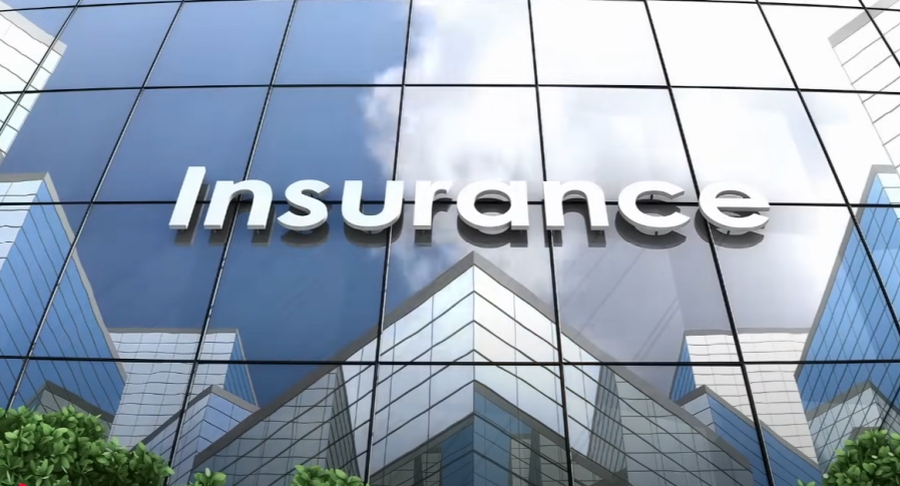Because in this industry, confusion costs more than premiums.
They’re Not Buying Coverage.
They’re buying relief. They’re buying a promise. They’re clicking because they’ve been burned before, and they need to believe this time will be different.
That belief starts with your website.
1. People Don’t Land on Insurance Websites Because They’re Happy
No one visits an insurance website out of curiosity. They’re there because something broke, expired, got stolen, got priced up, or scared the hell out of them. And now, you have under 10 seconds to prove you’re not another headache.
If your homepage is slow, vague, or hides everything behind “Solutions,” they’ll leave. Not because they didn’t need you. Because they didn’t feel seen.
2. You’re Not Just Selling Policies. You’re Navigating Fear
Insurance isn’t a product. It’s a bet on the worst-case scenario. Health, auto, life, it all hinges on one question: “Will this protect me when it matters?” Your website has to answer that before anyone asks.
- Clear language: no jargon, no legalese.
- Real photos: your team, your city, your space.
- Copy that disarms, not overwhelms.
- Layouts that don’t scroll forever before showing value.
Trust isn’t built in pixels. It’s built in permission: “I trust you enough to keep reading.”
3. Break Your Services Down or Watch Visitors Break Down
All-in-one Services pages kill clarity. Grouping auto, home, renters, and life insurance into one wall of text doesn’t prove range. It proves laziness.
You want performance?
- Auto: Explain multi-driver discounts. Show how policies vary by ZIP code.
- Homeowners: Visual tools for coverage limits. Interactive fire or flood zone lookups.
- Life: Side-by-side breakdown of term, whole, final expense. Zero assumptions.
- Business: “What’s required in Georgia?” popups. Coverage checklists. Industry-specific FAQs.
Each product, its own page. Each page, its own journey. That’s not overkill. It’s respect for your visitor’s decision-making.
4. Your Quote Form Isn’t a Gate. It’s a Trust Transaction
Most quote forms are interrogation booths. They ask for VINs, SSNs, or medical history before even saying hello.
That’s not high performance. That’s high abandonment.
Here’s the fix:
- Start small: ZIP, policy type, contact.
- Use smart logic: only show extra fields when context demands.
- Offer save-and-return: people get interrupted, don’t punish them for it.
- Explain your ask: “We use this to recommend accurate options.”
The more your form feels like a tool and less like a test, the better your conversion rate.

5. Comparison Builds Confidence. So Give Them Control
Every “Get a Quote” click hides one question: “Am I about to make a mistake?”
Your job? Eliminate doubt before they ever call.
- Comparison tools: clear, toggleable, no downloads
- Breakdown charts: show price vs. coverage vs. deductibles
- “Most popular in Atlanta” tags
- Hover definitions for confusing terms
- Highlight what’s not covered. Especially that
Make choosing feel safe. Because in insurance, indecision is your real competitor.
6. Local SEO Isn’t Just Geography. It’s Familiarity
Atlanta’s not just a city. It’s a map of micro-climates, zip code quirks, and neighborhood-specific risks.
Want traffic that converts?
- Create dedicated landing pages: “Flood Insurance for Grant Park,” “Business Liability in West Midtown”
- Mention actual streets, claims data, policy types popular in those regions
- Use client reviews by area
- Optimize your Google Business Profile with images, operating hours, and agent bios
Google doesn’t rank “insurance.” It ranks usefulness.
7. Your Blog Isn’t SEO Filler. It’s a Proof of Life
Old blog? Dead site.
Want people to trust you? Write like someone who’s dealt with loss, recovery, paperwork, and relief.
Post titles that work:
- “What My Insurance Didn’t Cover When My Roof Collapsed”
- “How I Found Out My Agent Didn’t Add My Spouse”
- “The Claim That Took 12 Minutes and Saved $12K”
Forget what AI would write. Write what people remember.
8. Tech Is Not a Feature. It’s the Minimum Buy-In
Fast-loading. Mobile-ready. Secure.
These aren’t competitive advantages anymore. They’re the baseline. But if you want to build a high-performance insurance site, you don’t stop at “it works.” You ask, how well? how fast? how smart?
Let’s get into it:
- Load Speed: Your site should be interactive in under 3 seconds. Not on fiber. On a 4G mobile connection, in Midtown traffic, on a five-year-old phone.
- Core Web Vitals:
- LCP (Largest Contentful Paint): Under 2.5s
- FID (First Input Delay): Under 100ms
- CLS (Layout Shift): Below 0.1. Layout shouldn’t jump when your quote form loads.
- Responsive Layout: Not just “resizes on mobile,” but built for mobile first. Bigger tap targets. Input masks. Predictive keyboard triggers.
- Security: SSL, yes. But also ReCaptcha v3, rate-limiting on login attempts, auto-logout for client portals, and SHA-256 encryption on form data.
- Infrastructure:
- CDN via Cloudflare or similar
- Brotli or GZIP compression
- Hosting with sub-100ms TTFB in Atlanta region
- Integrations: Your quote form should talk to your CRM. Your CRM should trigger automations. Your site should know when someone bailed at Step 2 and send a follow-up.
- Maintenance:
- Daily backups
- Weekly plugin audits
- Monthly security scans
- Quarterly UX testing
High performance doesn’t just mean fast. It means resilient. It means adaptive. It means never giving your prospect an excuse to hesitate, technically or emotionally.
Your Website Is Your First Act of Protection
You don’t sell insurance. You sell peace of mind.
And your website is the first handshake. The first “we’ve got this.” The first “it’s going to be okay.”
If your site doesn’t deliver that in under 10 seconds, it’s underperforming.
Let’s build one that performs like your business does. Flawlessly under stress.
Partner with the team behind Atlanta’s most trusted insurance websites

